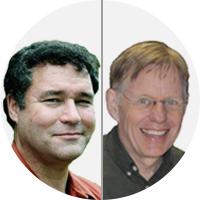The views expressed in our content reflect individual perspectives and do not represent the official views of the Baha'i Faith.
The primary mission of Baha’u’llah, whom Baha’is believe to be the most recent of God’s Messengers and Prophets, is to bring world peace through the unification of humanity.
Some of the social teachings brought by Baha’u’llah, and made perhaps even more revolutionary because they were manifested in a particularly backward redoubt of Islamic fanaticism in the mid-1800s, are:
the agreement between science and religion,
the equality of women and men,
the need for spiritual solutions to the problem of economic inequality,
the abolition of prejudice and the necessity of racial equality,
the need for a single world language,
a comprehensive treaty establishing the borders of all nations,
the establishment of a world government with sufficient power to prevent global destruction.
Certainly most scientists, or indeed any thinking person, would see the benefit of these progressive social teachings. The only debate is whether they are practically possible. Indeed, they are not reasonably possible in the absence of the positive contribution of religious faith, but when considered within the context of such faith, Baha’is believe they are not only possible, but inevitable.
That conviction comes from a process that is directly observable, yet fundamentally mysterious. An initial, perhaps tenuous and uncertain impulse of religious faith encourages more consistent practice of the core spiritual teachings such as the Golden Rule, and also observation of specific religious ordinances such as regular prayer. The initial success of these practices in “building a better person” encourages increasing adherence to the teachings. Once the process reaches a critical mass of believers, the impact of these personal transformations begins to improve community life, which then has further positive effects on society.
This entire process is all directly observable, indeed, probably testable in quantitative fashion if desired. What is not observable, and is outside human understanding, is the precise process through which God transmutes tentative faith and incomplete adherence to spiritual teachings into greater deeds and greater faith. But this transformation is promised to anyone that makes an honest effort, scientists included.
The challenge for all of us is to examine our assumptions about God and religion, and to ask ourselves if our observations have been distorted by the ancient human tendency to imitate and follow without questioning. Have the many instances of fanaticism, intolerance, prejudice and hypocrisy kept us from recognizing the power of the essence of religious teaching to transform the human heart and thereby change human society?
The time when only a few were considered to be competent to offer a relevant explanation of the Writings of the world’s religions is past. We can, and should, think and question for ourselves. In the spirit of a genuine scientist we can become seekers of truth and understanding, eager and capable of recognizing/discovering beauty where we may have never expected to find it. For example, electricity and nuclear energy have been latently present for millennia but we didn’t know about them until the modern age. Are there spiritual analogues to these phenomena that can impact and improve our lives and enhance our ability to influence social progress in today’s world? We can be systematic and diligent in this search, and always open-minded, but our openness should not confuse “faith” with belief in things that are demonstrably untrue. Refusal to be a seeker of truth and lover of beauty in today’s world is possibly as retarding to social progress as superstition and rigid adherence to outworn traditions of the past.
Our original question was a quest to discover purpose, meaning and integrity that would be ennobling and conducive to abiding contentment. Our hypothesis for an answer is that the essence of God is outside the ability or scope of science to either prove or disprove. However, the example of science does show that the pursuit and discovery of the truth, and the courage to recognize it, applies to the essence and the beauty of religious teaching.
What is the purpose of God and religion? Baha’u’llah says,
The fundamental purpose animating the Faith of God and His Religion is to safeguard the interests and promote the unity of the human race, and to foster the spirit of love and fellowship amongst men. – Gleanings from the Writings of Baha’u’llah, p. 215.
Serious consideration of the methodology provided by Baha’u’llah for the realization of this goal and this understanding in ourselves and our society is worthy of the “scientist” in all of us.


















Comments
Sign in or create an account
Continue with Facebookor